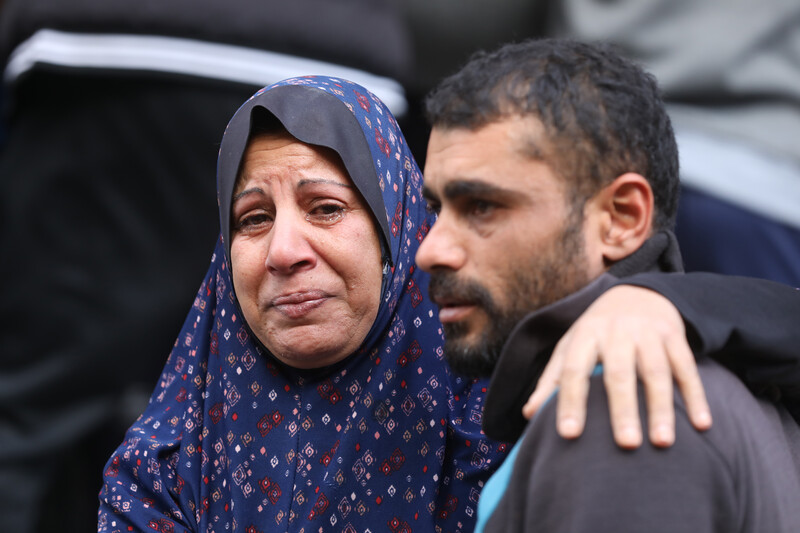The Electronic Intifada 5 December 2024

Grieving relatives mourn the victims of yet another Israeli attack on a school-turned-shelter in Nuseirat refugee camp on 29 November, 2024.
APA imagesI saw my cousin Fatima in early November.
I visited her and her three children in the UN school in Nuseirat refugee camp in the central Gaza Strip where the family has been staying for over a year.
I went just two weeks after the school had been bombed in an Israeli attack on 24 October. She and her children – Omar, 3, Ahmed, 6, and Mariam, 8 – escaped unharmed, but their tent and what little belongings they had were destroyed and scattered.
The attack, Fatima, 35, told me, almost broke her, a woman who has survived for over a year as a single parent to three young children after being forcibly displaced from her home in Jabaliya in October 2023.
“I wanted to cry. I wanted to scream. I just couldn’t take it any more,” she said.
But she also understood at the same moment that she could not give in to what she called “crushing despair.” She had three young children to care for and no one else to rely on.
Her husband, Muhammad, had stayed in Jabaliya to look after elderly relatives. When he tried to join his wife and children in August, he was shot and wounded on the way and has been hospitalized ever since.
Fatima’s story is the story of almost everyone in Gaza where 1.9 million people out of a total population of 2.3 million have been displaced as a result of Israel’s genocidal violence over the past 14 months.
And two months after Israel re-invaded northern Gaza, including Fatima’s Jabaliya area – where the family house was destroyed in an Israeli air strike over a year ago – a new wave of displaced people is heading south, escaping Israel’s brutal northern assault and the near total absence of food and water in the area since 6 October, after the Israeli military denied access for most humanitarian aid there.
Simple joys
Simple joys once marked Fatima’s life: watching her three children chase each other through the alleys of their neighborhood, sharing meals with neighbors and savoring the rare moments of peace that made up their modest life.
Those days feel like distant dreams now, she said. When Israel’s genocide first starrted, she said, she held out hope that the violence would end quickly. She reassured her children, telling them it was only a matter of days.
But as those days slipped into weeks and the weeks bled into months, it became impossible to ignore the bleak reality.
Food was running out, and clean water became scarce. Medical supplies, already limited, were almost impossible to find. With every passing day, the constant threat of violence loomed heavier over their heads.
Fatima said she did her best to keep things as normal as possible for her children, hiding her own fear from them.
“But they were trembling with every bomb that fell,” Fatima said. “No amount of reassuring words could calm them.”
Then the bombs struck the camp and Fatima almost cracked.
Except she didn’t. She forced herself to stay calm, she told me, gathering her children close, pulling them into the safety of her arms.
A new hope
When the dust finally settled and as she looked around at the devastation that surrounded them, something inside her refused to be extinguished.
“I felt a spark of defiance,” she said. “I knew that I couldn’t give up — not for myself, but for my children.”
And so, Fatima and her family began to pick up the pieces of their shattered lives yet again. It was a long and arduous process, each day bringing new challenges and uncertainties. But they refused to give up.
“We will get through this, inshallah,” she told her children. “We will rebuild, alhamdulillah, for all that we have endured.”
Together, they cleared the rubble and used what was left of the fabric of their tent to build another smaller one, determined to have at least a bit of shelter.
Fatima went further. She planted mulukhiya seeds in the soil around their shelter, watching with quiet satisfaction as tiny green shoots broke through the earth. She told her children stories of a future after the genocide, painting vivid pictures of laughter and sunlight, of a life where fear no longer ruled their days.
Fatima clings to the belief that she and her little family will find a way forward. And with every small step, she said, “I feel a little of my humanity return.”
Hamza N. Ibrahim is a writer and teacher based in Gaza.


